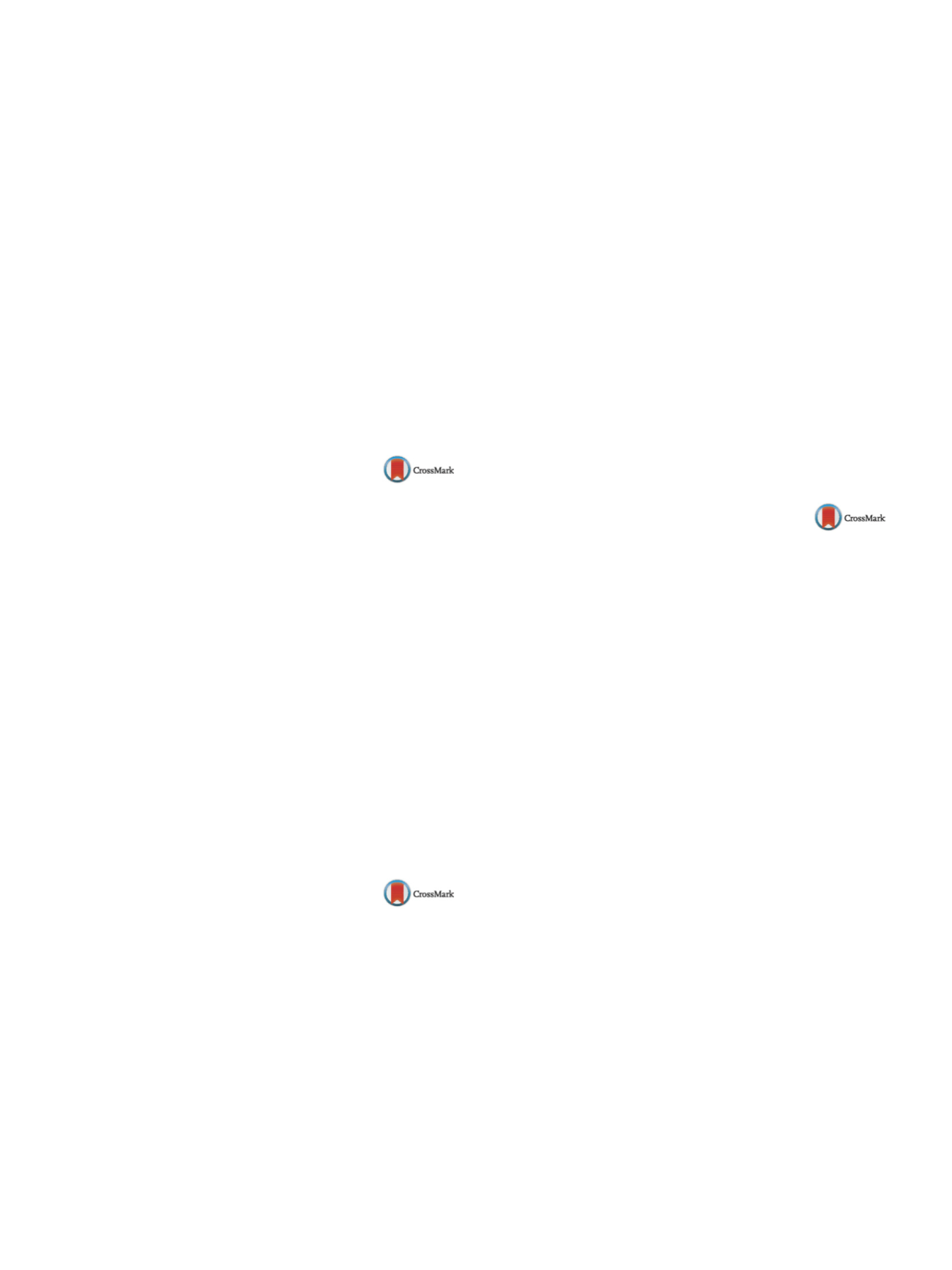

S604
25th European Congress of Psychiatry / European Psychiatry 41S (2017) S583–S644
from the patient’s medical records. Multivariate logistic regression
was used to examine correlates of help-seeking behaviour among
patients with probable insomnia.
Results
275 cases of probable insomnia were identified. Among
this group of patients, 38.9% had never sought help for their sleep
problems. Participants who were single were less likely to seek
help as compared to those who were widowed/separated/divorced
(OR= 0.319,
P
= 0.023). Having a comorbid psychiatric condition
was independently associated with increased odds of help seeking
(OR= 1.952,
P
= 0.027). Participants who perceived greater daytime
impairment due to sleep problems were more likely to seek help
(OR= 1.465,
P
= 0.007).
Conclusions
The majority of psychiatry patients with sleep prob-
lems sought professional help, though there remained a substantial
group that did not do so. There is a need to educate and create
awareness of potential sleep problems among psychiatric patients,
and to inform them of the availability of treatment.
Disclosure of interest
The authors have not supplied their decla-
ration of competing interest.
http://dx.doi.org/10.1016/j.eurpsy.2017.01.944EV0615
Did we have in history a
chronomusicotherapy?
A. Chaouqi
1 ,∗
, Y. Alaoui Mamouni
1, Z. hammani
2, M. Yassari
21
Hôpital militaire Mohamed V, psychiatry, Rabat, Morocco
2
Hôpital militaire My Ismail Meknes, psychiatry, Meknes, Morocco
∗
Corresponding author.
Andalusian music is the name of the classical music in Morocco. It
grown in Andalucia, but we still find it just in Morocco and some
other countries of North Africa. A music that related with soufisme
and Marestans: hospitals at that era. A music which is also called
“al-Ala” means the machine. It has 24 “Naoubas”: rythme as much
the hours of the day and each Naoubas can be played in just an hour
in the day.
It was played for patients in Marestans. This music was played by
all the factions of the great Morocco (actual Morocco and Spain)
society: including Muslims, Christians and Jews, with a variety of
instruments this music did imposed itself, and still one of land-
marks of Morocco.
We will talk about the specifities and also the particularities of this
kind of chronomusicotherapy.
Disclosure of interest
The authors have not supplied their decla-
ration of competing interest.
http://dx.doi.org/10.1016/j.eurpsy.2017.01.945EV0616
Mental heath in republic of moldova:
The way from in-patient to
community-based care services
J. Chihai
State University of Medicine and Pharmacy “Nicolae Testemitanu”,
Psychiatry- narcology- medical psychology, Chisinau, Moldova
Introduction
The history of mental health in Moldova has been
centered on psychiatric institutions. Current reform goals are cen-
tered on the reduction in psychiatric hospital beds, shifting the
focus towards outpatient therapy, where communitymental health
centers have a central role in coordinating recovery and social rein-
tegration.
Objectives
to collect different data according guidance for estab-
lishing a situational analyses about Moldova.
Methodology
we elaborated a guidance with outline: the histor-
ical perspective:
– a. back a 5–10 years events/developments; epidemiologic data;
– b. the service delivery system;
– c. mental health system: laws/regulations, role of the govern-
ment as well as civil organizations, mechanisms for data collection,
monitoring of performance, costs, quality of care and outcomes;
– d. opportunities, barriers, and needed changes/innovations
needed to address these.
Results
The current focus is on moving from a relatively cen-
tralized system towards a more community-based approach to
psychiatric care and community supports, as well as deinstitution-
alization and integration of mental health care with primary care.
Besides over reliance on institutionalization, the Moldovan mental
health care system faces other challenges, including access to care,
workforce limitations, and stigma.
Conclusion
Looking forward, success in these efforts will require
continued strong political will to bring domestic law, policies and
practices into line with international standards in the field of
human rights for persons with disabilities. By supporting dein-
stitutionalization and improving the accessibility of mainstream
services, more people will have the opportunity for social inclu-
sion and the ability to contribute to the communities’ social and
economic growth.
Disclosure of interest
The author has not supplied his/her decla-
ration of competing interest.
http://dx.doi.org/10.1016/j.eurpsy.2017.01.946EV0617
Adapting the assertive community
treatment (ACT) for the needs of
different communities: A comparative
case study of KUINA ACT Japan and Mt.
Sinai ACT Canada
W. Chow
1 ,∗
, M. Shiida
2, L. Andermann
11
Mt Sinai Hospital, Psychiatry, Toronto, Canada
2
KUINA Center, Psychiatry ACTT, Hitachinaka, Japan
∗
Corresponding author.
In this workshop, we will present the assertive community treat-
ment (ACT) model in both Japan and Toronto, Canada. We will
compare the adaptations of ACT models in both teams in order to
serve their target populations efficiently and effectively.
We will also compare the demographic data, clinical data and
the outcomes of both ACT teams by analysing the hospitalisa-
tion days, number of emergency admission and the number of
admissions into hospitals. We will also highlight differences in
the mental health systems in Japan and Canada in an attempt to
formulate guidelines to ensure the effectiveness of ACT Teams in
both countries. We would also like to open up discussion with
the audiences and incorporate their ideas and suggestions in an
attempt to formulate a competent mental health system which
would effectively cater to the needs of people suffering severe
mental health symptoms to ensure successful integration into the
community.
Learning objectives
:
– To explore adaptation in implementation of ACT in Japan and
Canada;
– to develop a framework or model for assessing issues critical in
establishing ACT in different countries;
– to develop guidelines to establish programs which will contin-
uously be revised implementation based on needs, systems and
feedback from the field.
Disclosure of interest
The authors have not supplied their decla-
ration of competing interest.
http://dx.doi.org/10.1016/j.eurpsy.2017.01.947

















